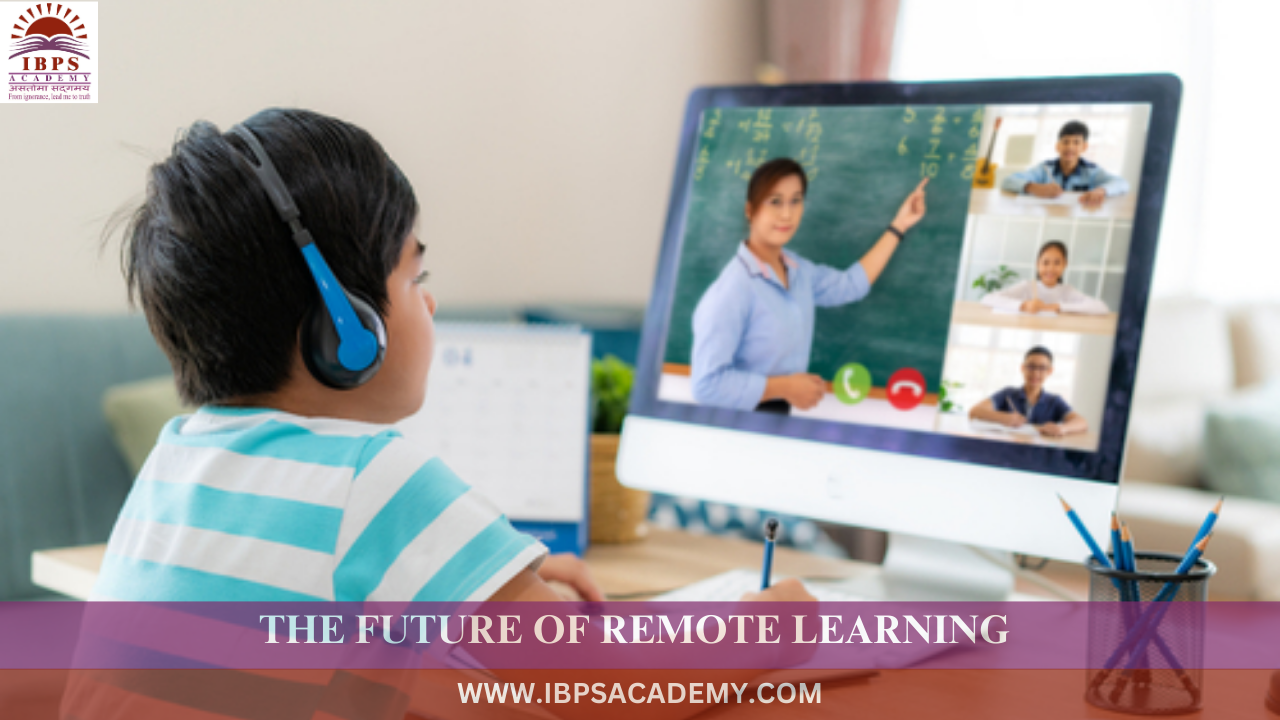

The future of remote learning looks promising and is expected to evolve in various exciting ways. Here are some key trends and developments we can anticipate:
With advancements in artificial intelligence (AI) and data analytics, remote learning will become increasingly personalized. AI-driven platforms will be able to assess a student's strengths and weaknesses, adapting the curriculum to their individual needs. This could help students progress at their own pace, receive targeted interventions, and access resources that fit their learning styles.
A blend of in-person and online learning will become the norm in many educational settings. Hybrid learning offers flexibility, allowing students to choose between physical attendance and remote participation, depending on their preferences or circumstances. This model also provides opportunities for synchronous and asynchronous learning.
Virtual classrooms will become more interactive, engaging, and immersive. The use of tools like Virtual Reality (VR) and Augmented Reality (AR) will offer students the chance to participate in simulated environments that enhance learning experiences, such as virtual lab experiments or historical site tours. Mixed reality could also provide highly interactive sessions that blur the lines between digital and physical spaces.
Remote learning will enable students from across the world to access high-quality education. Schools, universities, and companies will open up learning opportunities to global markets, breaking down geographical barriers. This will lead to greater inclusivity, allowing people in underserved or remote regions to participate in education that was previously out of reach.
As remote learning tools continue to evolve, more emphasis will be placed on collaborative learning. Online platforms will incorporate social learning elements such as group projects, discussions, and peer-to-peer interactions. These can foster a sense of community and ensure students still develop soft skills like communication and teamwork.
AI-powered tutoring systems could become widespread, providing on-demand assistance and feedback to students. These systems will be able to answer questions, guide learners through difficult concepts, and even provide extra practice exercises tailored to individual needs. This will complement human instructors and create a more supportive learning environment.
The future of remote learning will likely focus more on developing essential soft skills like communication, critical thinking, adaptability, and emotional intelligence. As these skills become more valuable in the workforce, educational institutions may prioritize them alongside traditional academic subjects.
Traditional degree programs may evolve into more flexible, modular learning paths. Students will increasingly pursue microcredentials and certifications that align with specific skills, offering faster, more affordable options for career development. This will allow students to "stack" qualifications over time, providing a tailored approach to learning.
Teachers will benefit from more advanced tools that help them manage and monitor their students' progress. AI-driven analytics will provide insights into where students are struggling, enabling instructors to offer more targeted support. Additionally, professional development for teachers will increasingly focus on adapting to digital education tools and understanding new technologies.
As remote learning continues to grow, the importance of securing student data will increase. Innovations in cybersecurity and privacy standards will be necessary to ensure that student information remains protected. Additionally, measures to address online harassment, cheating, and data misuse will be crucial in maintaining trust in digital education.
The future of remote learning could contribute to environmental sustainability by reducing the need for physical infrastructure and daily commutes. Virtual learning reduces the carbon footprint associated with traditional education settings and promotes environmentally friendly practices.
Remote learning will foster lifelong learning opportunities. As the job market changes, individuals will need to continually reskill and upskill. Remote learning platforms will provide flexible, ongoing education options for people throughout their lives, supporting continuous professional development.
The future of remote learning will be shaped by technological advancements, greater personalization, and increased flexibility. While challenges remain, such as maintaining engagement and addressing the digital divide, the potential for a more accessible, adaptable, and global learning experience is undeniable.
